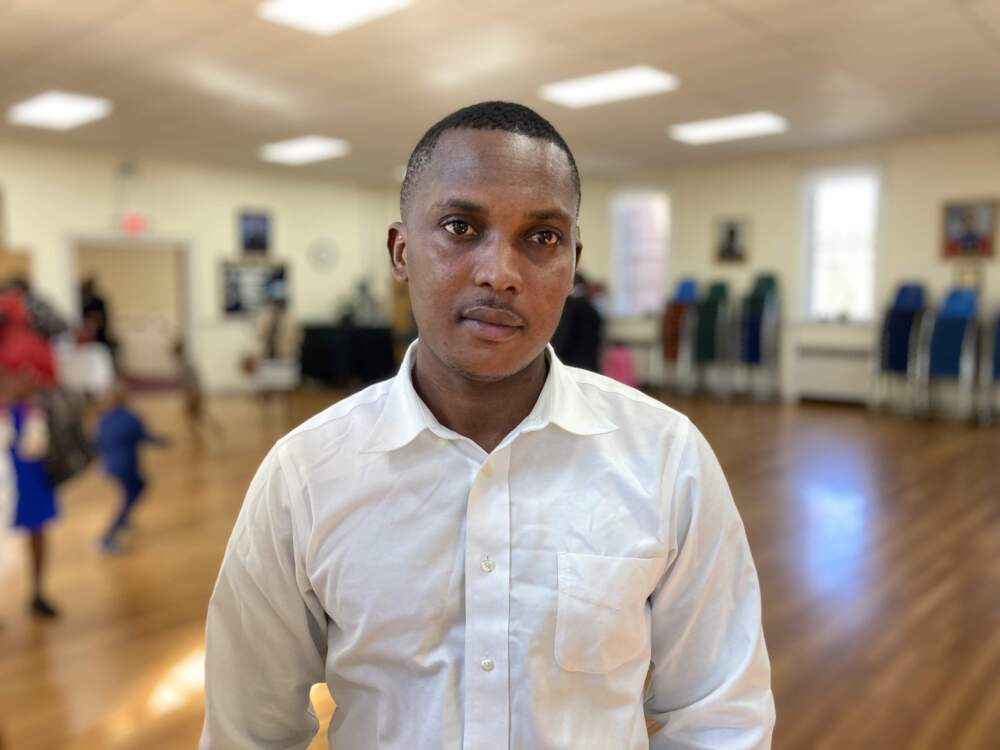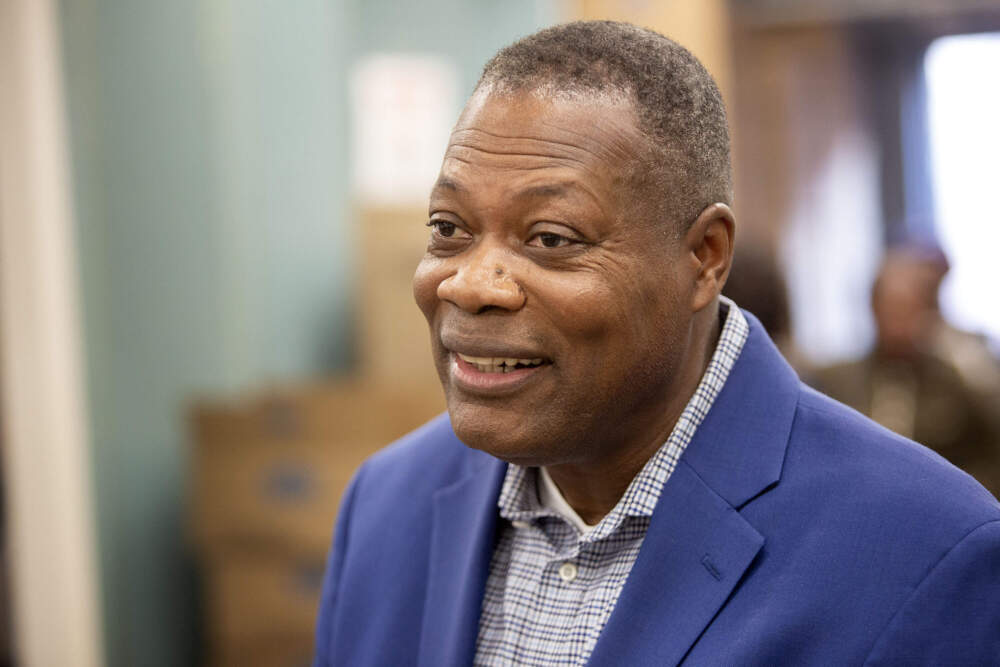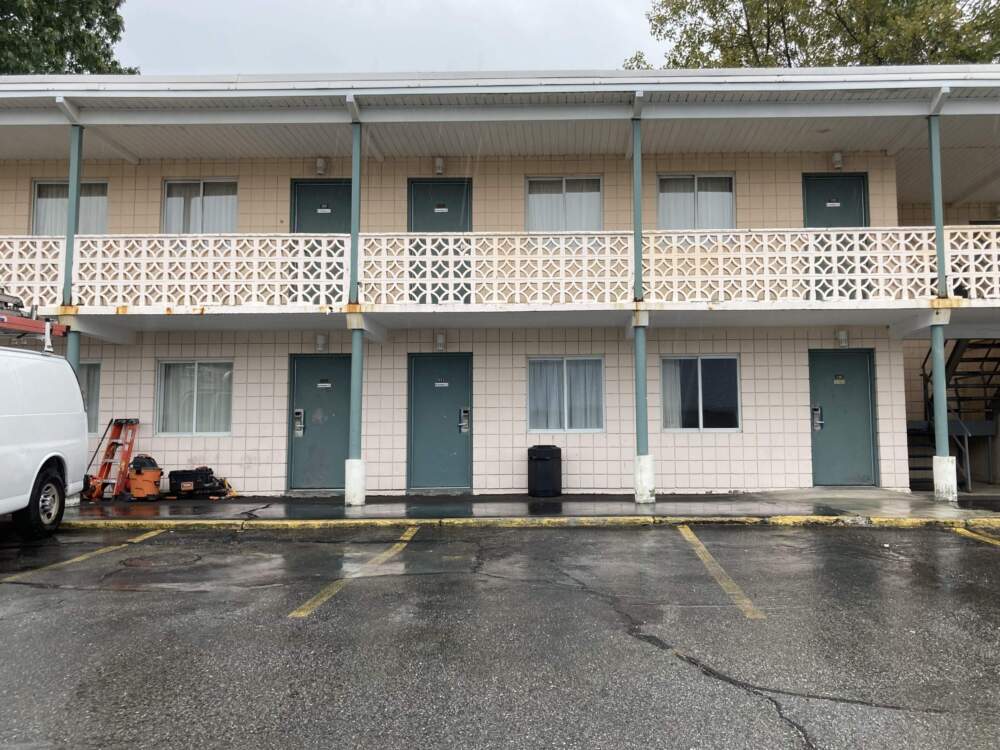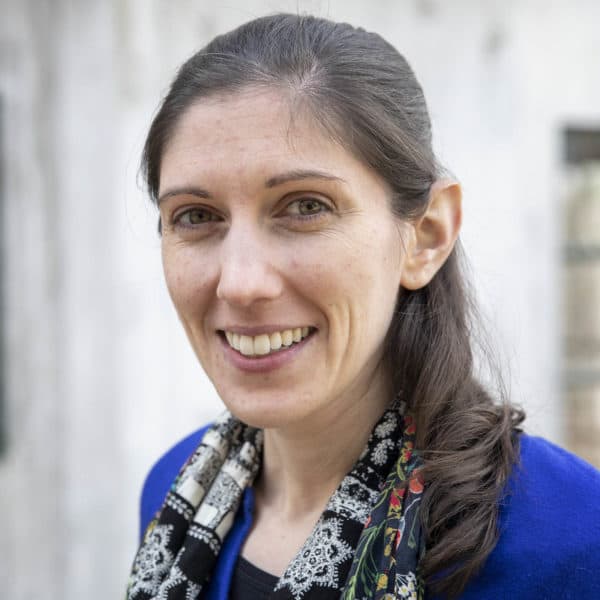Advertisement
Tracing the path to Massachusetts for thousands of new Haitian immigrants

Prayers for Haiti came booming through the speakers.
“At churches in Haiti, people cannot gather today,” Rev. Dieufort Fleurissaint said to about a hundred Haitian congregants who met on a recent Sunday morning in Milton. “They've been chased out of their homes, displaced from their neighborhoods, from their families. We pray.”
Many of the people offering prayers at this church are new to Massachusetts, and are also praying for their own futures.
Since 2022, thousands of Haitian immigrants have arrived in the state seeking work and a place to settle with their families. The Immigrant Family Services Institute, a nonprofit in Boston, estimates it has assisted some 14,000 new Haitian immigrants in the past two years.
It's hard to know how many total immigrants arrive in the commonwealth each year, or where they come from, because the state does not collect that data. However, an increase is visible in the state's ballooning family shelter system, where nearly half of the people housed are migrants, refugees or asylum-seekers, according to a state report. The vast majority of these new arrivals are Haitians, according to people and organizations that work with families in the system.
The increase in family homelessness led state officials to cap the shelter population late last year and create a waitlist to get into a shelter. Gov. Maura Healey has repeatedly called for more federal funding to help address the needs of new immigrants.
While each family has its own journey to Massachusetts, there are common patterns in the path many families describe taking and the motivations that drove them to make the long and complex trip.
The first migration
For many Haitians arriving in Massachusetts, this is a second migration. Often, their first migration, out of Haiti, happened years ago.
The Caribbean nation has long known hard times, explained Fleurissaint. He pointed to natural disasters — hurricanes and earthquakes — and political turmoil like the assassination of the president as factors that have pushed people to leave their homes and communities in Haiti. The tumult has been compounded by economic challenges and violence.
“We have seen, lately, the infestation of gang activities in Haiti,” he said. “So all those factors contribute to the displacement of those families.”

Will Freeman, a fellow for Latin America studies at the Council on Foreign Relations in New York, said many of the Haitians arriving in the U.S. today left Haiti between 2010 and 2020.
“Over 100,000 Haitians left the country in the early 2010s after the earthquake [and] went to Brazil and Chile because, at the time, they looked like two of the most stable economies and two of the most welcoming countries in the region,” Freeman said.
Brazil was gearing up for the 2014 World Cup, and jobs were plentiful. Plus, the country was offering humanitarian visas that smoothed the way. Chile allowed Haitians to enter without a visa, Freeman said.
"These Haitians, who'd gone to two of the most stable [and] economically productive countries in Latin America, suddenly found themselves really on the margins."
Will Freeman
Jeannot Bocaje is among those who left Haiti for Chile. He made the trip six years ago, driven out, he said, by gang violence and pulled by the hope of economic opportunity. At first, he found work on a farm in Chile.
However, in the late 2010s and early 2020s, both Brazil and Chile’s economies began to falter. Other Latin American countries were struggling too, and Bocaje said more immigrants began to arrive, ratcheting up the competition for jobs.
“Other nations came to Chile in big quantities — the Peruvians, the Bolivians — and they started being racist against us,” Bocaje said, speaking through a Haitian Creole interpreter at the church in Milton. He came to Massachusetts in 2023 to seek a better life for his family.
Bocaje noted that many Haitians are of African descent and have darker skin. Haitians who immigrated to Chile also spoke Spanish as a second language, which he believes put them at a disadvantage in the job market.
Advertisement
“These Haitians, who'd gone to two of the most stable [and] economically productive countries in Latin America, suddenly found themselves really on the margins,” said Freeman.
He cited surveys from 2019 that showed Haitians in Chile were the migrant group least likely to be employed, and almost half reported workplace discrimination, more than any other group in the survey.
The second migration
As the economic and social obstacles in Brazil and Chile pushed many Haitians to consider leaving, Freedman said two other forces also figured prominently.
First, the path north had started to seem less daunting, even the notorious jungle passage in Panama known as the Darién Gap.
“It's still, of course, an extremely dangerous route,” Freedman said. “But, now when you cross that area, there's a clear cut path through the jungle. There are places to buy food and migrant guides along the way.”
Second, Freeman said, for families looking to the the United States for better opportunities, there was an increasing sense of urgency. Many people worried that political debate over immigration could make it harder to get into the U.S.
“There’s a widespread perception that now’s the time,” Freeman said.
Moving within the U.S.
The Haitian families who traveled north did so alongside hundreds of thousands of others from Venezuela, Ecuador and elsewhere. This migration has contributed to record numbers of people crossing the southern U.S. border in places like Texas.
From there, some Haitian families head straight to Massachusetts, drawn by a vibrant, well-established Haitian community. But in the last year, immigration advocates said they have noticed many new arrivals who tried to settle in another state first.
“We now are seeing a real influx of people coming from Florida, from Georgia, from places where the anti-immigrant sentiment is very, very high,” said Geralde Gabeau, the executive director of the Immigrant Family Services Institute.
She believes one reason is a law in Florida that took effect last summer, making it challenging for immigrants to work and get identification cards. It also requires hospital staff to ask about patients' immigration status.
“Sometimes I feel like there should have been a national outrage about what Florida is doing. And you feel that everyone is quiet. And, to me, it is inhumane.”
Geralde Gabeau
“They talk about even pregnant women who cannot access care, who cannot even deliver babies,” Gabeau said. “Sometimes I feel like there should have been a national outrage about what Florida is doing. And you feel that everyone is quiet. And, to me, it is inhumane.”
Florida's Gov. Ron deSantis has said he took action because the federal government is not doing enough to limit immigration. He said the law would ensure his state's taxpayers "are not footing the bill for illegal immigration."
According to Gabeau and interviews with several recent immigrants, many Haitians in places like Florida hear about Massachusetts from social media, where people share information with potential new arrivals.
“They are connected to social media platforms,” Gabeau said, posting updates about jobs and housing in Massachusetts.
Life in Massachusetts
In recent months — with winter weather and a waitlist for the family shelter system — the number of new arrivals has slowed somewhat, according to immigration advocates, but it has not stopped. Informal networks continue to help people find their way.
When Bocaje arrived in Texas, he said he didn’t know anyone in the U.S., but fellow travelers and a local pastor pointed him toward Massachusetts.
“They told me if I go to Boston, I'll find people that are able to care for me,’ ” he said, adding that the Texas pastor paid for plane tickets for him, his wife and their daughter to fly to Massachusetts.

Bocaje said his family was lucky. They arrived before the state-run family started placing families on a waitlist.
They're one of thousands of families staying in hotel rooms rented by the shelter system. While he’s grateful for their room, Bocaje said his family is still struggling. Like many others, they find the food provided in the shelter unfamiliar and not something they want to eat.
“A lot of children [in the shelter system] are losing weight, so that's concerning,” said Aura Obando, the medical director of the family team at the Boston Health Care for the Homeless Program. She said families often have access to a microwave and a mini fridge, but it's difficult to prepare their own food.
"The kids aren't used to eating things like pizza and mac and cheese,” she said.
Each week, Bocaje said his family looks forward to church, where they join the congregants in Milton.
One Sunday, Bocaje listened as Fleurissaint, the reverend, prayed into the microphone: “If your life is broken, lift your head and say, ‘I know that I can make it.’ ”
As the words washed over him, Bocaje said he prayed that life in Massachusetts improves.
This segment aired on February 9, 2024.
